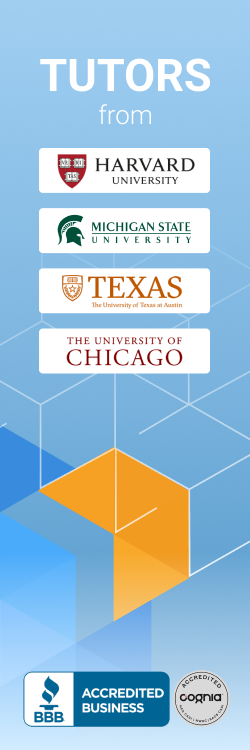What if I never understand? What if I can’t understand? Why is this so hard for me? These thoughts often swirl around in the brain of a struggling student, adding to their anxiety and stressed. As they beat themselves up and worry because they are falling behind, any mental block they are experiencing related to the content just grows and grows and grows.
So what can you – as an effective online tutor – do to help build your students’ confidence? Because building a student’s confidence is often the first step necessary to make any sort of academic breakthrough, here are a few confidence building strategies you can use to during your one-on-one tutoring or homework help sessions through Train The Brain.
Model a Growth Mindset.
Students might come to you with an enormous I CAN’T burned into their brains. Often, when you try again and again with little success, you start to automatically think that you simply can’t do whatever it is your trying. As a tutor, demonstrating a growth mindset is an important way for you to help them break that cycle of negative thinking.
When a student says, “I can’t,” gently remind them that, sure, that’s partly true. However, you’re going to add “yet” to that statement. By changing “I can’t,” to “I can’t yet, “ this allows a little wiggle room for the hope that even though something is hard, that doesn’t mean it’s impossible. Reminding your struggling student that there are lots of things they’ve probably thought they’d never “get” but eventually did will help them put their current struggle into perspective. Modeling a growth mindset is an important foundational step for tutors who want to help build their students’ confidence.
Set Achievable Goals.
Whether you’re only working with a student for one session or you’re planning on multiple weekly sessions, setting goals will help your students build confidence. If you’re working with them for a single session, the goal should be set to something that you can accomplish in that individual session. That means that the goal should be as small as the amount of time you have to work with them. At the end of your session, to encourage their growth and to encourage them to schedule with you again, you can let them know what small step you will achieve in their next session.
Sometimes, because teens’ brain development hasn’t quite gotten to the point where they have a realistic idea of what is possible or not, they think they’re going to be able to just “learn Algebra today.” It’s your job as the tutor to engage them in the more mature thinking of “This is what we can accomplish today. This is what we can accomplish in two days. And this is what we can accomplish if we meet two days a week for a month.” Showing them how to set achievable goals relieves the pressure they unintentionally put on themselves to “just learn it.” This is a valuable goal to help them build confidence as well as an important lesson to learn that they’ll be able to carry over into many different parts of their lives.
Guide, Don’t Tell.
Sure, you could just tell your students the answers to the concepts they aren’t understanding, but the real goal of a highly qualified tutor is for their students to learn how to learn. This means that instead of just telling your students “now do this,” it’s important instead to ask them guiding questions that lead them to the answer themselves.
We learn better when we discover ideas and systems ourselves. Instead of being a broken record and telling your student “Now, do this,” ask them, “What do you do next?” and “Why did you just do it that way?” or “What makes you say that?” You can follow up with questions like, “Why didn’t that work?” or “What do your notes say to do?”
When a student discovers how to do the work themselves with only some guidance from you, the ability to do the work stays ingrained in their mind. They feel more confident in their ability to think and figure things out themselves, and the questions you ask to guide them start to pop up when they’re on their own. Your goal is to teach them how to learn, and when they start to learn that lesson, their confidence and abilities will grow. You are teaching them a valuable lesson that they can carry far beyond the tutoring session.
Give Specific Praise.
The fancy term for specific praise is “evidence-based behavior-specific praise.” And that term really explains everything about the type of praise that helps students feel more confident about their ability to learn. If you give students generic praise like “good job” that could be said to anyone doing anything students are quick to pick up on the insincerity of the compliment. In fact, our brains actually filter out generic compliments like that.
It only takes a second of your time to think for a moment about what you’re actually wanting to praise. So instead of the generic compliment, think about the specific behavior you’ve observed and compliment that! Students don’t need to know that they’re “so smart.” That’s not actually a compliment about any effort they made; instead, it’s a compliment about something that they might have inherited with no effort from them. But, students do gain confidence from hearing, “I like what a good work ethic you showed by practicing these problems from last session.” They gain a lot from compliments like, “It’s cool to see your creativity and work revising shine through in the word choice in this paragraph.” Rather than giving compliments that are less specific and meaningful, the praise that really resonates with your students will identify a specific behavior that you’ve witnessed or seen the results of.
As a tutor, you’ve taken on an important role to support students when they need it the most. Breaking down barriers to learning is just as important as learning the specific academic content. You can’t have one without the other, so start practicing these confidence building strategies and see how much more your students bond with you and learn to trust themselves.











